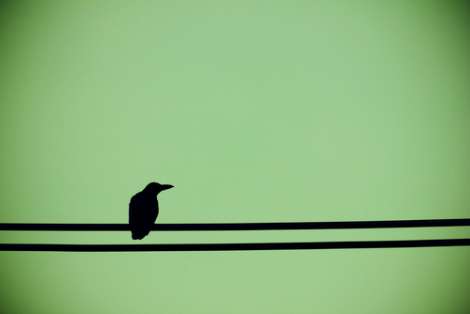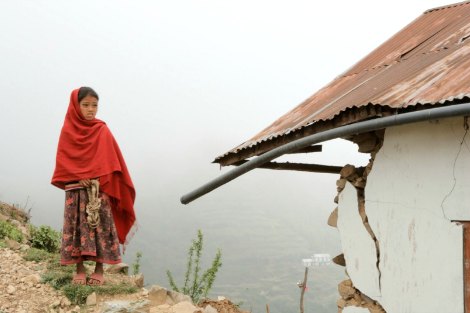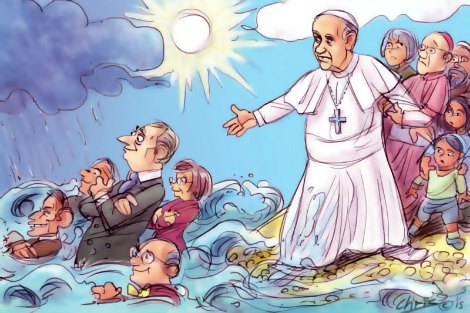Keywords: World Day Of Peace
There are more than 200 results, only the first 200 are displayed here.
-

ARTS AND CULTURE
- Graham Kershaw
- 22 September 2015
1 Comment
I dreamt of a family escaping through pines, over the crest of a forest, young and old struggling down to the shore of a great cold lake, their only hope of escape; no boat was there, but the strong might try to carry the old, at least, if they cared enough. And it made me want to simply run away, to escape the brain-ache of not doing what we are best made to do.
READ MORE 
-

- Frank Brennan
- 18 September 2015
Pope Francis's concerns are not narrowly dogmatic or pedagogical but universally pastoral. He knows that millions of people, including erstwhile Catholics, are now suspicious of or not helped by notions of tradition, authority, ritual and community when it comes to their own spiritual growth which is now more individual and eclectic. He wants to step beyond the Church's perceived lack of authenticity and its moral focus on individual matters, more often than not, sexual. He thinks the world is in a mess particularly with the state of the planet — climate change, loss of biodiversity and water shortages, but also with the oppression of the poor whose life basics are not assured by the operation of the free market, and with the clutter and violence of lives which are cheated the opportunity for interior peace. He is going to great pains to demystify his office. He wants all people of good will to emulate him and to be both joyful and troubled as they wrestle with the probl
READ MORE
-

- Frank Brennan
- 01 September 2015
1 Comment
If you want to form government in Australia and if you want to lead the Australian people to be more generous, making more places available for refugees to resettle permanently in Australia, you first have to stop the boats. If you want to restore some equity to the means of choosing only some tens of thousands of refugees per annum for permanent residence in Australia from the tens of millions of people displaced in the world, you need to secure the borders. The untrendy truth is that not all asylum seekers have the right to enter Australia but that those who are in direct flight from persecution whether that be in Sri Lanka or Indonesia do, and that it is possible fairly readily (and even on the high seas) to draw a distinction between those in direct flight and those engaged in secondary movement understandably dissatisfied with the level of protection and the transparency of processing in transit countries such as Malaysia and Indonesia. The popular evil is that political
READ MORE
-

- Frank Brennan
- 26 August 2015
7 Comments
When addressing Italian doctors last November, Pope Francis quoted St. Camillus de Lellis who suggested that the most effective method in caring for the sick was simply to 'Put more heart into those hands.' Let's do something to change the market settings and political settings here in Australia to modify the behaviour of all Australians in the future, and let's attend to our own Franciscan interior ecological conversion with our care for the vulnerable.
READ MORE
-

ARTS AND CULTURE
- Jordie Albiston
- 18 August 2015
Her every lover, her filler of dreams, her kisser of broken & bruised. She watches him through the pills, she misses him when he leaves, whispers to foot that when she recovers she will love him for ever & ever, but now he is heading back down the stairs & she stares at his absence.
READ MORE 
-

- Frank Brennan
- 08 July 2015
3 Comments
I suspect Pope Francis had some of our Jesuit alumni in mind when he wrote in his encyclical Laudato Si: 'A politics concerned with immediate results, supported by consumerist sectors of the population, is driven to produce short-term growth... True statecraft is manifest when, in difficult times, we uphold high principles and think of the long-term common good. Political powers do not find it easy to assume this duty'.
READ MORE
-

- Frank Brennan
- 24 June 2015
1 Comment
Given the ready access we have to international media and the world wide web, we can no longer plead ignorance of the trouble going on in our world. Those of us who are purist pacifists can presumably put a coherent case for eschewing violence in all cases, even were a madman to be imminently threatening the lives of our most vulnerable loved ones.
READ MORE
-

AUSTRALIA
As a kiwi I had grown up with earthquakes. I remember them large, small and intrusive. Awed by their power, I cherished the still that followed. This is what made Nepal’s second major earthquake so different for me. I will never forget the beginning of the 7.3-magnitude quake, but will never recall the end.
READ MORE 
-

ARTS AND CULTURE
- Isabella Fels
- 27 May 2015
9 Comments
It was a place of torture, with great physical and mental pain. I remember being hit at with a hockey stick. I was forced to stoop, in all sorts of ways. All my efforts came to nothing, even when I gave the girls money to buy lollies, and lent them my Sweet Dreams teenage romance novels.
READ MORE 
-

- Frank Brennan
- 25 May 2015
7 Comments
There are many things different from Ted's day, but he would have spoken of them without fear or compromise. A pope from the South who asks 'Who am I to judge?'; a 62 per cent Irish people's vote in favour of expanding the definition of civil marriage; the long awaited beatification of Oscar Romero whose identification with the poor did not win immediate Vatican approval; the call by civic leaders for an Australian cardinal to return home and answer questions posed by a royal commission; and the election of a black US president.
READ MORE
-

RELIGION
Both John Paul II and Benedict XVI made passing reference to environmental issues. Benedict spoke of the need for protection of the environment, resources the climate in his encyclical Caritas in Veritate. But in terms of its significance, Pope Francis’ forthcoming encyclical has the potential to do for the environmental movement what Pope Leo XIII’s Rerum Novarum (1891) did for the union movement – to provide it with a powerful source of moral and religious legitimacy in the face of those forces which have sought to limit their influence.
READ MORE 
-

- Frank Brennan
- 26 April 2015
5 Comments
This Memorial Church here at Harvard was dedicated on Armistice Day 1932 in memory of those who died in World War I. It is fitting that we, Australians, New Zealanders, Turks and Americans should gather in this place to mark the centenary of Anzac Day, the day on which Australians and New Zealanders landed in the stillness of the early dawn on the Turkish shoreline wanting to assist with the Allies’ advance on Constantinople, now Istanbul, the day on which the Turks commenced a successful, eight month campaign to defend their homeland against the assault.
READ MORE